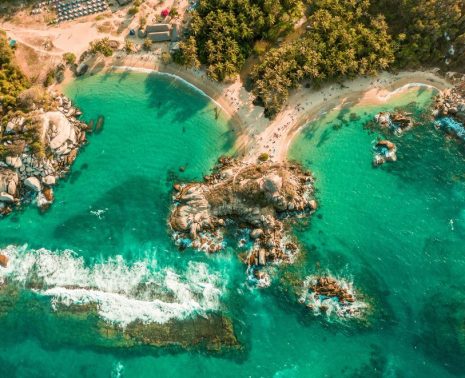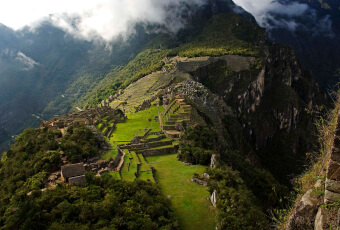
1. Buying local
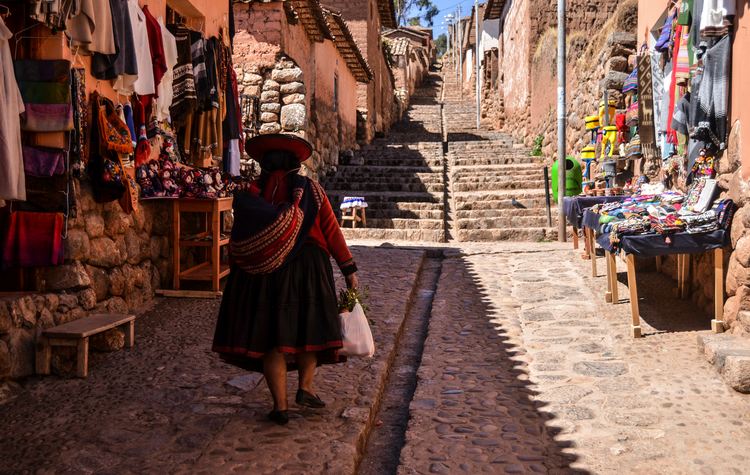
Ensuring your money stays in the local economy is a crucial way to travel more responsibly. Supporting local businesses is more important than ever when you travel. Get out of your comfort zone and have some fun navigating the local market – buy spices grown by a local farmer or purchase jewelry made by a local artisan. Although haggling is expected in many cultures and okay to do, don’t be stingy and pay a fair price.
2. Go on local tours
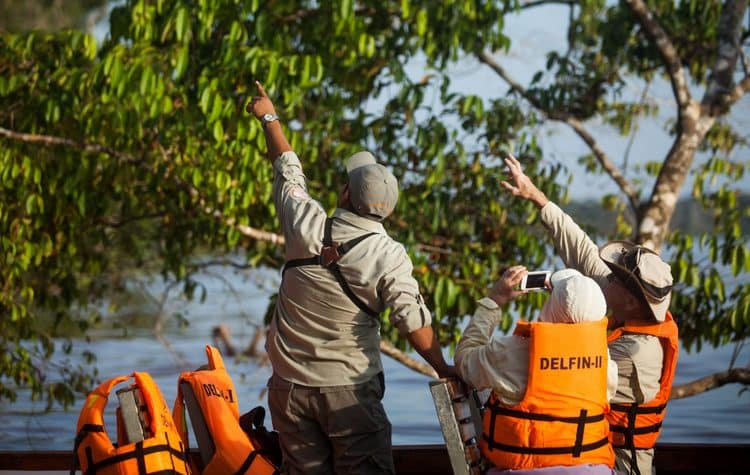
Book excursions led by local guides or learn a new skill from a local expert by signing up for a weaving workshop or surfing lessons. If you book a packaged tour, choose an operator that prioritizes local suppliers. As you explore new places, opt for recreational activities that don’t pollute or use energy, such as kayaking, biking, or hiking. Not only will you create zero carbon emissions, but you’ll also likely discover unique sights and experiences away from the beaten path.
3. Eating local

Beyond having a more authentic, delicious, and cultural experience when you travel, eating local also helps lower CO2 emissions from fewer food miles, rural job creation and preservation, the maintenance of the natural landscape, and revitalization of local heritage in the communities that you’re visiting.
Short and simple supply chains assist in retaining more money in the local economy by minimizing the number of intermediaries between grower and consumer, allowing farmers to capture a higher percentage of the farm-value share. Whilst this is an important issue in developed countries, it is an even more important one in developing parts of the world, where many more people depend on income from agriculture to support their families. Your dollar goes further within the community you’re visiting when you eat at local restaurants, go to local farmers’ markets and consume local versus eating at familiar chain restaurants or foreign-owned restaurants.
4. Travel with an airline committed to going carbon neutral
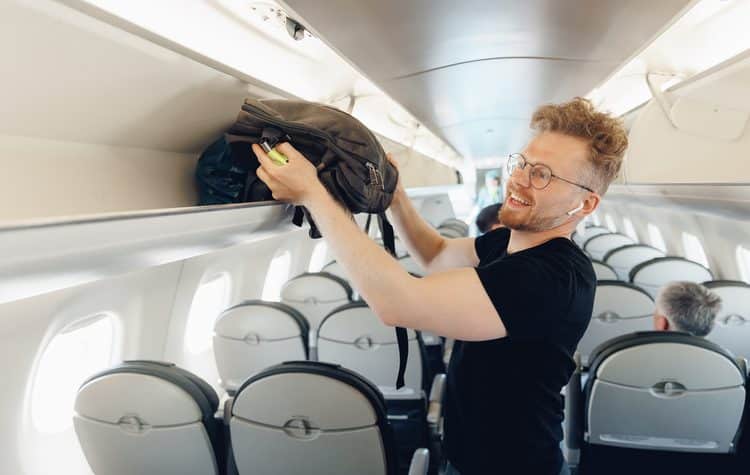
Travel restrictions imposed across the world during the COVID-19 pandemic forced airlines to plead for government bailouts and lay off staff, while some folded entirely. There was one silver lining, though: a huge temporary drop in the sector’s carbon emissions. In 2019, carbon dioxide emissions from aviation made up 2.5% of global emissions of greenhouse gas. Aviation is considered one of the hardest sectors of the global economy to decarbonize because the fuels and technology needed to fly without emitting greenhouse gasses are much less well-developed than clean energy sources in sectors such as electricity or road transport. As other sectors reduce their emissions, aviation is expected to make up an increasingly large share of the world’s total.
Public and government pressure on airlines to do more to reduce emissions is ramping up. Meanwhile, responding to pressure from politicians and the public, airlines have set themselves increasingly ambitious climate targets, with dozens pledging to reach net zero carbon emissions by 2050 in recent months, compared to previous industry-wide plans to halve emissions by 2050.
5. Stay at eco-friendly and carbon-neutral properties

Supporting hotels with green practices is more important than it may seem. As per the United Nations, the hotel industry is responsible for 1 percent of global emissions. An eco-friendly hotel is one that makes significant efforts to reduce its environmental impact, both behind the scenes and in guest rooms. These hotels are often known as eco hotels or green hotels. There are endless ways for hotels to reduce their impacts. A few common practices include: ramping up recycling and composting programs; installing energy-efficient lighting; using non-toxic cleaning products; providing personal care products for guests that are non-toxic or packaged in bulk containers instead of tiny single-use plastic bottles; using reusable dishes and cutlery in hotel restaurants as well as rooms; greywater recycling; and providing signs encouraging guests to hang their bath towels up for reuse.
6. Avoiding places where animals are kept in captivity

According to World Animal Protection, more than half a million wild animals are used for tourist entertainment. Animal and wildlife tourism can promote education, conservation, and local economic growth. However, many animal tourism experiences can put an animal’s health and welfare at risk. Unsafe conditions for animal tourism encounters can also be dangerous to the people visiting. Infant animals are often taken from their mothers, subjected to pain to control their behavior, and prevented from developing social interactions with their own species. When animals are pushed to perform “tricks”, they are often chased, physically abused, and kept isolated which leads to psychological abuse. Often the most popular animals for tourists to see are endangered species. If these parks and sanctuaries include animal shows, photo opportunities, petting, and handling exhibitions or rides, consider looking elsewhere.
7. Packing with intention

In some countries, waste management is a challenge, and visitors can add to the problem in a significant way by making use of single-use items. Those metal straws in your kitchen and cloth grocery bags laying around? Bring them in your suitcase! Take reusable cutlery or reusable water bottles and pack them with you in your luggage to avoid using plastic bottles, spoons, forks, and bags when you travel abroad – this helps limit your impact on the environment and ensures you’re keeping the area clean.
Though it’s tempting to buy new clothes for every vacation, try to avoid fast fashion and opt for borrowing any pieces you don’t have or buying from local boutiques committed to ethical clothing manufacturing. Try bringing pieces that can be used interchangeably with other pieces to create a capsule wardrobe, or even thrifting to avoid buying new clothes for each trip.
8. Be Mindful of Local Resources
When you’re traveling to another country, you become a guest of that country – which means ensuring you are not taking scarce resources from the locals that rely on them.
Long, steamy showers are the perfect way to scrub off a long day of travel, but the staggering amount of both energy and water used by travelers negatively impacts locals much more than most travelers realize. Two billion people around the world don’t have clear running water. Turning off the tap when you brush your teeth, reusing towels, and taking short showers isn’t just our moral imperative, it’s common sense
Beyond reserving water, its important to do research on which resources are scarce in the area that you’re traveling in. Avoid traveling to places with food shortages, or opt to stay in solar power only hotels when visiting a place with limited electricity access.
9. Respect Natural Places and Wildlife
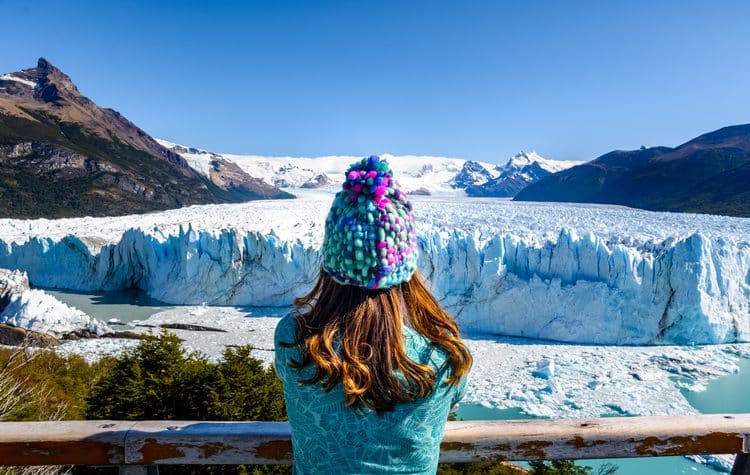
An important part of traveling responsibly is taking care of the nature and wildlife that were there hundreds, sometimes thousands of years before people were.
Often, local governments can take measures to ensure natural places are protected – in National Parks and UNESCO World Heritage sites, like Machu Picchu – it is illegal to remove rocks,artifacts, plants and other natural objects from their location. Instead, take photographs as souvenirs. Remember to always pick up trash, yours or otherwise and minimize plastic waste brought into natural sites.
Learn about wildlife through quiet observation. Do not disturb wildlife or plants just to have a “better look.” Always observe wildlife from a distance so they are not scared or forced to flee. Large groups often cause more damage to the environment and can disturb wildlife so keep your group small. If you have a larger group, divide into smaller groups if possible, to minimize your impacts.
10. Tip The Locals
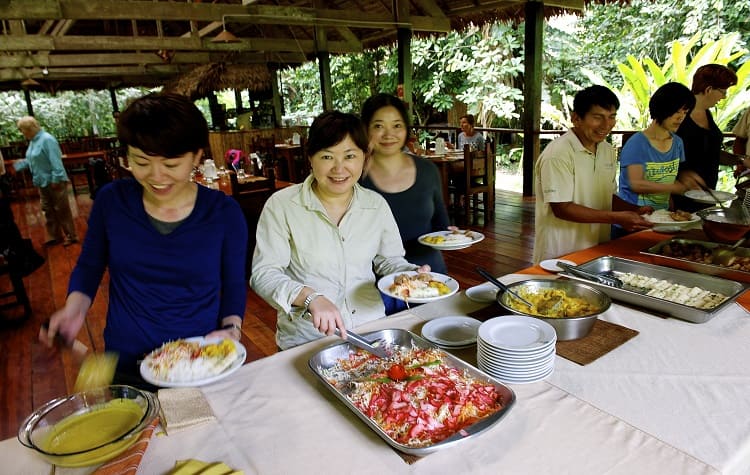
A rule of thumb for post-pandemic travels: Tip more, and more often, than you did before, and extend your habits to those you may not have considered. Did you eat an extraordinary meal? Consider leaving a little something extra for the kitchen staff, too. Have a restorative hotel stay? Factor in each person who made you feel so at home, including the friendly team at the door. Remember: It takes a village to execute your trip—and to keep you safe.
11. Be Mindful of Your Toiletries

Some common sunscreens and soaps contain harmful chemicals that can be absorbed by the ocean’s fragile coral reef systems and contribute to coral bleaching. Before you dive in, make sure to use reef-friendly products, such as biodegradable or mineral-based sunscreens, shampoo, and soaps. Or think about switching to protective clothing, like rash guards and wet suits, which dermatologists say are just as effective as sunscreen.
12. Traveling Slowly

Slow travel or slow tourism is the basis of responsible travel, and therefore, the most sustainable option. The obvious benefit is that you can reduce the environmental impact of your trip by sticking to exploring one destination, instead of whizzing around multiple places. By staying in one place for longer, you also get to live like a local, become part of the local community, and contribute to the local economy. When you get to know a destination well, you get to experience the local culture and local communities at a much deeper level. This deeper travel gives you the opportunity to have more meaningful experiences and create memories that you will treasure for a long time.
13. Get Tested/ Vaccinated

Travelers all over the globe are excited about the return of travel after nearly two years of restrictive travel, however; it’s important that travelers are more careful than ever about preventing infection in the communities they visit. Though it is no longer a requirement to travel in and out of many countries in South America, traveling responsibly means getting tested and vaccinated prior to departing on your South America adventures.
14. Educating others
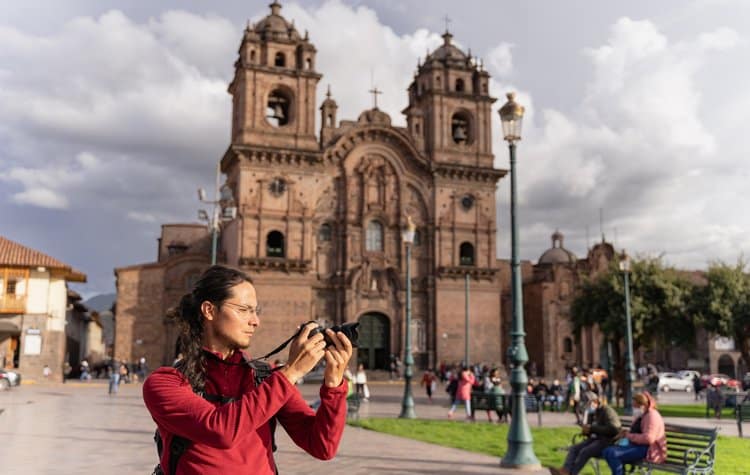
After experiencing responsible travel for yourself, you’ll have a wealth of knowledge and advice that you can share with someone else who is just getting started. Discussing your trip with friends and family is one way to fill them in on the importance of responsible travel, and make them aware of how responsible travel adds to your time abroad.
15. Tour with a company dedicated to sustainability

One way to ensure sustainability and mindful travel is at the forefront of your next trip? Booking with Kuoda, an award-winning tour operator committed to sustainability and mindful travel. Our passion is giving back to the places we operate in, and each of our trips takes into consideration the environmental and social impact of the destinations we work in. We partner with local businesses, and eco-friendly properties while really taking pride in ensuring that we are enriching the lives of visitors and improving the lives of locals through our practices. Learn more about our initiatives that will help you travel more responsibly, here.
Sip Responsibly at The Most Sustainable Vineyards in Argentina
Argentina's wine industry is not only renowned for its exceptional quality but also for its commitment to sust...
Read Post9 Wildlife Conservation Programs For Your Travel To The Amazon Rainforest
Travel to the Amazon Rainforest, often referred to as the "Lungs of the Earth," is a vast and ecologically cri...
Read PostThe Most Sustainable Destinations in South America To Visit in 2024
Sustainable travel to South America is critical in ensuring the destination, its biodiversity and rich culture...
Read Post

 Call
Call 









